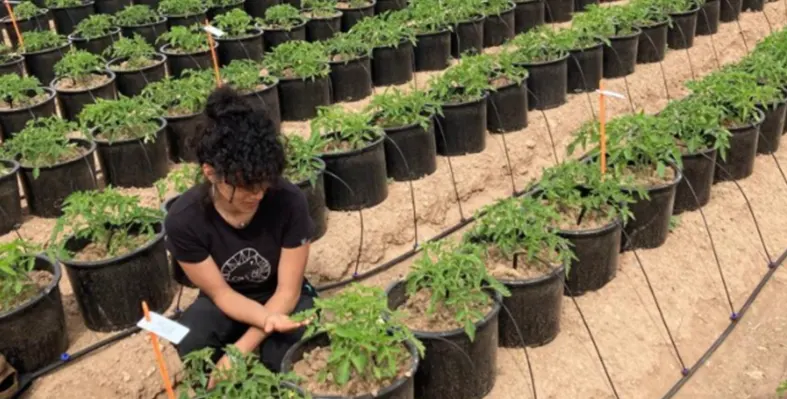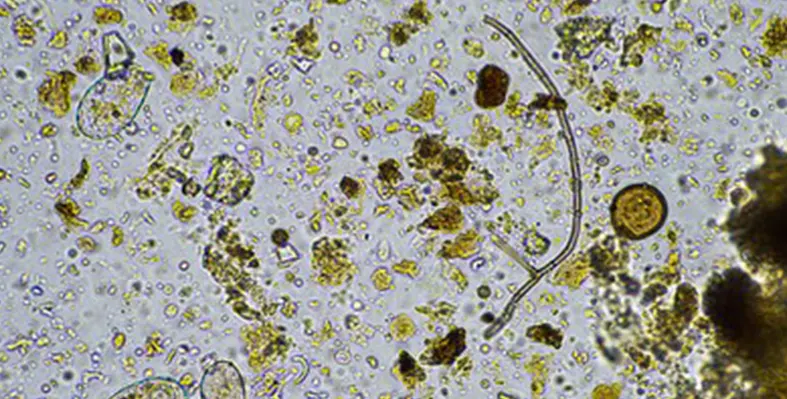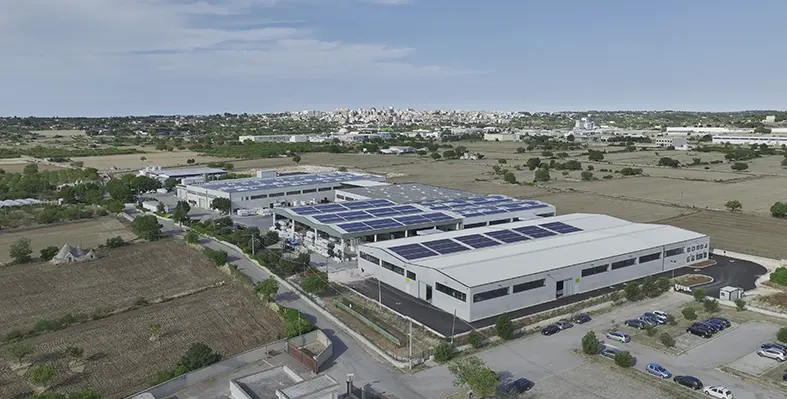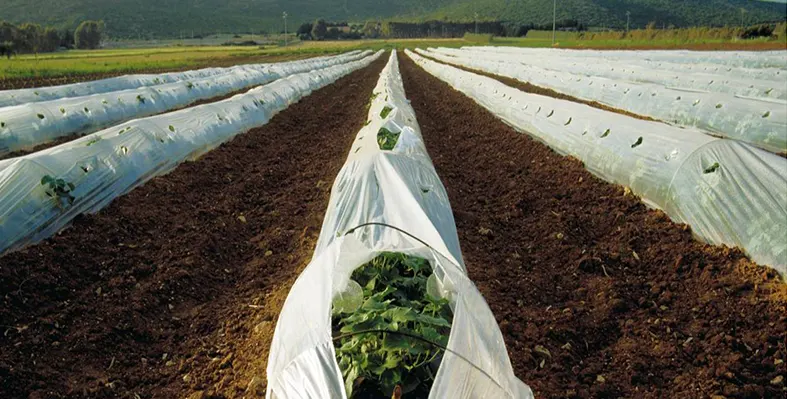
Ifigenia Urbina Barreto, PhD in Ecology and former Biome Makers employee conducting a tomato trial. (Image source: Biome Makers).
Biome Makers and Anglo American have collaborated on a joint research project on the impact of POLY4, Anglo American’s new low-carbon fertiliser, on the soil microbiome
The partnership involves soil trials that analyse and verify the impact of POLY4, Anglo American’s multi-nutrient fertiliser, on soil microbiome composition and functionality through a study on tomatoes and wheat in Spain.
Soil trials have confirmed that with a targeted approach, POLY4 is environmentally friendly and preserves native soil microbiome biodiversity and boosts microbial nutrient mobilisation of potassium (K), calcium (Ca), and chlorine (Cl), improving plant nutrient uptake and development. The research also showed a reduction in soil electrical conductivity, thanks to the activation of calcium and chlorine microbial mobilisation, which further supports healthy soil ecosystems.
“Our collaboration with Anglo American shows our commitment to advancing sustainable agriculture through applied science,” said Dr Alberto Acedo, chief scientific officer of Biome Makers. “By leveraging BeCrop’s proprietary microbiome analysis tools and global soil database, we are able to provide companies like Anglo American with strong evidence of the positive effects of emerging ag input products on soil health.”







